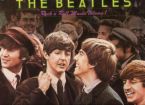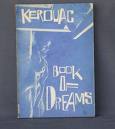 BOOK REVIEW
BOOK REVIEWOne Day In the Life of Ivan Denisovich
by Alexander Solzhenitsyn
Winner of the 1970 Nobel Prize for Literature
When I was visiting my friend Misso, I was in open admiration of his large collection of books, mostly of social and political significance. I asked him if I could borrow one, just one book for my trip. He thought for a while, and then said, "I know...here", and handed me a copy of this book.
I would recommend to anyone planning on reading this book to make sure it is an issue published after 1967, the "new edition", and to stop first and read the publisher's note, introduction, and the section entitled "Instead of a Foreword". Without reading those pieces, much of the cultural and historical significance of the book would be lost.

The publisher's note includes a letter written by Solzhenitsyn to the Fourth National Congress of Soviet Writers in 1967 which outlines offenses against creative works by the Soviet censorship agency, and rebukes the Union of Soviet Writers for not taking a stronger stance to support the forward movement of Soviet culture by opposition to the censorship of works. He accuses the union of turning a blind eye to unjust imprisonment, persecution, slander and press abuse of its writers without showing them public support, and in fact being the very ones to hand over the names of 600 writers to the government, who promptly sent these writers to prisons and labor camps for nothing more than expressing "their anticipatory judgments about the moral life of man and society, or to explain in their own way the social problems or the historical experiences that have been so deeply felt in our country."
The last part of the letter is a list of personal grievances towards the Union, including the theft of his intellectual property, a novel called "In the First Circle", which was taken away by the state and denied publication, but then published and passed around a select group of literary officials.
Curiously enough, during the time I was reading the reviewed novel, Solzhenitsyn and "In the First Circle" were making the news, now some forty years later. This now celebrated work is being published for the first time in English, in an uncut version anticipated to be released by HarperCollins in 2009.
Reading this letter gives a good sense of the political situation of the time, and an understanding of why some citizens were in the labor camps of the time period, the setting of the novel at hand.
The novel is exactly what it is titled - one day in the life of a man named Ivan Denisovich, who is a prisoner in one of these camps. There is nothing terribly remarkable about Ivan, or "Shukhov", as he is also referred to. He is not a leader of a revolt against the guards. He is not a highly regarded member of the labor force who gains special privileges, nor is he a lowly peon who gets picked on. He is the middle of the road, average, every day prisoner, and in choosing that type of person, on a day like every other day, with no spectactular action happening, lies Solzhenitsyn's genius.
One would expect the characters to feel depression about their situation, about unfair punishment, being forced to perform difficult manual labor outside in the Siberian winter, with the temperature below zero and with very little nourishment. Here, though, lies the beauty of human beings, the ability to adapt to their situation and find sources of joy and hope, even in the most hopeless of situations. The feeling one gets upon reading this novel is that during times of survival, the character of man is more resilient than one would think, even if happiness exists only in making it through another day of life, or obtaining a special treat through an act of loyalty or acquiscence. Even though Ivan's life left much to despair about, like a wife he hardly knows after years of forced seperation and will probably never see again, or a physical surival based on conserving the small portions of bread rations and soup made from rotten fish and old cabbage, he doesn't go to sleep at night lamenting his fate, instead feeling happy and lucky.
Comparing the situations of the prisoners in the book, and with the addition of knowledge gained by written the introductory pieces, to today's culture in America, one walks away with a renewed appreciation for the freedoms and protection granted by our Constitutional amendments. The book serves as a reminder of the importance of creative works in preserving historical context and deepening our understanding of human nature.


























No comments:
Post a Comment